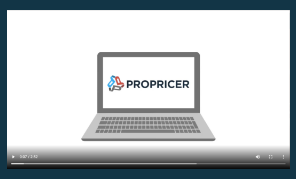Minority-owned small businesses face a unique set of challenges that come with being underrepresented. Nevertheless, potential is ripe in the field of government contracting.
For fiscal year 2020, the government awarded $145.7 billion in prime contracts to small enterprises, with minority-owned small businesses receiving a whopping $7.285 billion. (2)
Federal law requires 23% of all federal contracting dollars to go towards small firms. With the right tools, minority-owned small businesses can position themselves to command an even larger piece of the pie than they currently have, collectively. (1)
The best place to start is with certification programs. Not only do they offer a host of resources, they also provide access to set-asides and sole-sources, placing your business at the government’s front doorstep.
Opportunities for minority-owned businesses
One of the biggest advocates for minority-owned small businesses is the Small Business Administration (SBA). This organization focuses its 8(a) Business Development program on helping minority entrepreneurs better compete against their peers for government contract awards.
If you’re accepted, you can take advantage of the program for nine years. It offers a number of resources, including business training, marketing assistance, partnership opportunities, and executive development. Most notably, businesses can access sole-source contracting opportunities with an 8(a) certification.
To qualify for the 8(a) Business Development program, your business must:
- Meet the SBA’s size standards for a small business.
- Be owned or controlled (51% or more) by U.S. citizens who are socially or economically disadvantaged.
- Show that owners have a personal net worth of $750K or less, adjusted gross income of $350K or less, and assets of $6 million or less.
- Demonstrate good character and strong potential to perform on contracts.
The SBA’s 8(a) program aims to target the following groups:
- Native Americans
- African Americans
- Hispanic Americans
- Subcontinent Asian Americans
- Asian Pacific Americans
You may also be able to qualify if you can show economic disadvantage as a result of your gender or a physical disability, or by living in a community separated from general society.
If you meet the required criteria, the next step is to create a profile at SAM.gov. Afterward, you’ll be able to apply for the 8(a) certification on the certify.SBA.gov website.
Read Armor Works Case Study
Why it’s crucial to market yourself as a minority
Once you’ve been accepted into the SBA’s 8(a) Business Development Program for minority-owned businesses, don’t expect the government contracts to automatically roll in.
The 8(a) certification offers a host of resources, but you’ll still have to do the majority of the heavy lifting yourself. It helps to follow these best practices:
- Register with the GSA Schedules Program.
- Submit your free registration to the Central Contracting Database (CCD) and verify your business’ credibility.
- Invest in marketing efforts and clean up your website.
- Monitor FedBizOpps for opportunities and an invitation for bid (IFB).
- Submit bids—but be realistic about which bids you’re likely to win.
- Promptly respond to offers and submit requirement documents.
- Create a groundbreaking presentation catered to each unique contract.
Opportunities for women-owned businesses
The SBA’s 8(a) Business Development Program isn’t gender-specific, and women-owned businesses are welcome to apply.
Additionally, the SBA offers the Women-Owned Small Businesses (WOSB) Federal Contracting Program specifically for female entrepreneurs competing in the marketplace. The WOSB program comes with the 8(m) certification, which provides access to federal contracting opportunities.
To qualify for the 8(m) program, you don’t necessarily need to be economically disadvantaged. But your business must:
- Meet the SBA’s size standards for a small business.
- Be at least 51% owned or controlled by female U.S. citizens.
- Demonstrate that women manage day-to-day operations and make long-term decisions.
Business history doesn’t matter as much when you’re applying for the 8(m) certification, compared to the 8(a) program. However, the 8(m) program has more competitive set-asides, while the 8(a) program offers sole-source set-asides.
You can apply for an 8(m) certification on the beta.certify.sba.gov website and access support for the WOSB program and 8m certification here. (1)
Opportunities for veterans or service-disabled entrepreneurs
There are two main agencies dedicated to helping veteran-owned businesses secure federal government contracts—the SBA’s Service-Disabled Veteran-Owned Small Business Concern (SDVOSBC) Program and the VA’s Veterans First Contracting Program.
SBA’s Service-Disabled Veteran-Owned Small Business Concern Program
The Veterans Entrepreneurship and Small Business Development Act of 1999 paved the way for the government to commit to allocating 3% of the total value of all contract and subcontract awards to service-disabled, veteran-owned businesses.
The SDVOSBC program is designed to help Agencies meet this objective. It offers access to set-aside and sole-source awards as well as other resources to help qualifying businesses succeed.
Self-Certifying
The SDVOSBC program is self-certifying, which means there’s no formal verification process. To apply, simply indicate your status as a “Service- Disabled Veteran-Owned Small Business'' within the socio-economic category of the federal System for Award Management (SAM).
Although you won’t be required to verify your status in the beginning, it’s best to prepare your documents ahead of time. Individual Contracting Officers may require documentation to verify your eligibility before awarding contracts.
Department of Veterans Affairs (VA) Veterans First Contracting Program
Similar to the SDVOSBC, the VA’s Veterans First Contracting Program allows eligible businesses to participate in set-asides. They also have the opportunity to subcontract with the VA’s large prime contractors. The best part? The Veterans First Contracting Program is open to all veteran-business owners—not just the service-disabled.
Verification
The Veterans First Contracting Program requires a formal verification process, which is administered by the VA’s Center for Verification and Evaluation (CVE). You’ll have to show proof of your veteran status and meet additional qualifications, which can be found here.
Verification Assistance
The VA’s verification process isn’t always straightforward and some veteran-business owners may struggle to successfully navigate its steps. Fortunately, the VA offers guidance tools on its website and even personal assistance counselors through the Verification Assistance Program.
Find a Certified Verification Assistance Counselor to help you complete your verification process here. (3)
ProPricer Contractor Edition can help your chances
ProPricer grows with you. Programs designed for minority-owned small businesses are a great starting point. But ultimately, it’s up to you to follow through and effectively submit, negotiate, and secure government contracts.
For the highest levels of professionalism, you’ll want to use the same proposal format the government uses—and you can do this through ProPricer Contractor Edition.
With modern tools to help synchronize data, generate pricing reports, initiate complex what-if scenarios, standardize your pricing environment, and more, ProPricer helps you optimize every stage of the proposal process.
Plus, you can try out the platform using ProPricer Express to convert your cost proposal to the preferred government format. Sign up for a free subscription here.
Sources




